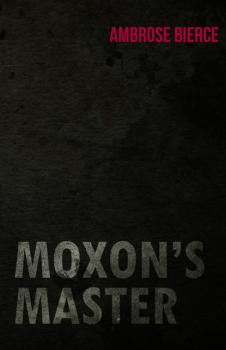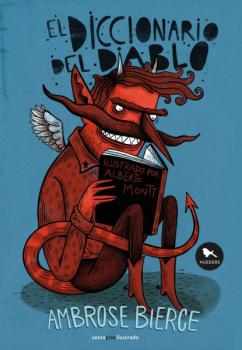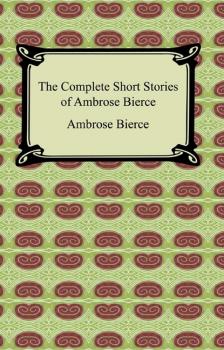ТОП просматриваемых книг сайта:
Ambrose Bierce
Список книг автора Ambrose BierceАннотация
One of the classic short stories based around the American Civil War. A story of a man joining a conflict because of betrayal and finding no safe place to hide in the horror of war.
Аннотация
A short story that speculates on what it is to be intelligent and when artificial intelligence becomes to powerful.
Аннотация
A story of how a straight forward order can come to haunt an officer who did not question enough.
Аннотация
Ambrose Bierce, célebre por su humor negro, es uno de esos escritores inclasificables que uno admira por su talento y mordacidad. El diccionario del diablo, su obra más reconocida, es ya un clásico universal, famoso por su despiadado ingenio cáustico, que dirige corrosivas andanadas a la política, las finanzas, la religión, la literatura, las artes… y a la especie humana en general. En esta colección de definiciones, a modo de entradas de un diccionario luciferino e irreverente que el autor fue perfeccionando a lo largo de treinta años, Bierce suministra con maestría su veneno y deja en evidencia la estupidez, intolerancia y falsedad de la sociedad de su tiempo, demostrando, una vez más, el poder desacralizador de la risa. La edición que presentamos es una selección de las definiciones de más vigencia para un lector actual, acompañadas de las viñetas de Alberto Montt, dibujante chileno conocido por sus ilustraciones satíricas.
Аннотация
Popular American writer Ambrose Bierce comes alive in the magnificent collection of short stories, «Civil War Stories.» Having been no stranger to the battlefield, Bierce draws upon his experience as a soldier and the stories he heard during the American Civil War in this collection. However, his tales do not happily reminisce about the good times; instead, Bierce's dry wit and love of the macabre guide his stories to much darker places. «Civil War Stories,» includes the tale «Chickamauga», the story of a young boy who fell asleep in the woods after playing alone. When he wakes, he sees a group of soldiers marching back from a battle. In jest, the young boy begins marching with them, and even participates in burning a house to the ground. In Bierce's most famous and chronicled story «An Occurrence at Owl Creek Bridge.» Peyton Farquhar, a Confederate sympathizer, is tricked by the Union soldiers and is hanged in front of his wife and children. Somehow, though he manages to escape his noose and is able to run far away from the frenzied scene. Regardless of which of the sixteen stories included in this collection that you read, you will be amazed at Bierce's ability to spin a short, suspenseful tale about one of the most tumultuous times in American history.
Аннотация
American journalist and satirist Ambrose Bierce is probably best known for his short stories about the American Civil War. The author's craft for story-telling is exemplified by his famous «An Occurence at Owl Creek Bridge», which is the story of Peyton Farquhar, a Confederate sympathizer condemned to die by hanging upon the Owl Creek Bridge. That great short story along with 96 others forms this exhaustive edition of «The Complete Short Stories of Ambrose Bierce.»
Аннотация
American journalist and satirist Ambrose Bierce is one of the most famous and fascinating figures in all of American literature. He led an adventurous and eventful life, beginning with his birth in a log cabin, to his time as a Civil War soldier, followed by his career as an author and journalist, to finally his mysterious disappearance during the Mexican Revolution at age 71. Bierce is perhaps best known for his short stories about the American Civil War, which influenced authors such as Ernest Hemingway and Stephen Crane. He was also an accomplished horror story writer, whose work inspired the tales of H. P. Lovecraft. Bierce’s gift for story-telling is exemplified by his famous “An Occurrence at Owl Creek Bridge”, which is the story of Peyton Farquhar, a Confederate sympathizer condemned to die by hanging upon the Owl Creek Bridge. It is one of the most anthologized of American short stories and showcases his cutting wit and talent for irony and surprise. This story, along with numerous others, is collected in this representative edition of “The Collected Short Stories of Ambrose Bierce”. This edition includes a biographical afterword.
Аннотация
Popular American writer Ambrose Bierce comes alive in the magnificent collection of short stories. Having been no stranger to the battlefield, Bierce draws upon his experience as a soldier and the stories he heard during the American Civil War in this collection. However, his tales do not happily reminisce about the good times; instead, Bierce’s dry wit and love of the macabre guide his stories to much darker places. “Civil War Stories”, includes the tale “Chickamauga”, the story of a young boy who fell asleep in the woods after playing alone. When he wakes, he sees a group of soldiers marching back from a battle. In jest, the young boy begins marching with them, and even participates in burning a house to the ground. In Bierce’s most famous and chronicled story “An Occurrence at Owl Creek Bridge”, Peyton Farquhar, a Confederate sympathizer, is tricked by Union soldiers and is hanged in front of his wife and children. Somehow, though he manages to escape his noose and is able to run far away from the frenzied scene. Regardless of which of the sixteen stories included in this collection that you read, you will be amazed at Bierce’s ability to spin a short, suspenseful tale about one of the most tumultuous times in American history. This edition includes a biographical afterword.
Аннотация
Regarded as one of the most influential American journalists of the late 19th and early 20th century, Ambrose Bierce was the Civil War veteran who was best known for his stories of the American Civil War and for his satirical witticisms. Written over several decades “The Devil’s Dictionary” is the ultimate collection of his lexicon of satirical definitions. Bierce’s earliest known definition was first published in 1867. Over the next several decades he would add numerous definitions to his satirical essays, in his weekly columns “The Town Crier” and “Prattle”, and in his personal letters. These definitions were first collected in book form in 1906 as “The Cynic’s Word Book” and later expanded as “The Devil’s Dictionary” in 1911. Not a real dictionary, but rather a lampoon of the English language, “The Devil’s Dictionary” provides satirical, witty and often politically pointed representations of the words that it seeks to “define”. Regarded by the American Revolution Bicentennial Administration as one of “The 100 Greatest Masterpieces of American Literature”, “The Devil’s Dictionary” is a unique masterpiece of cynical wit. This edition includes a biographical afterword.










